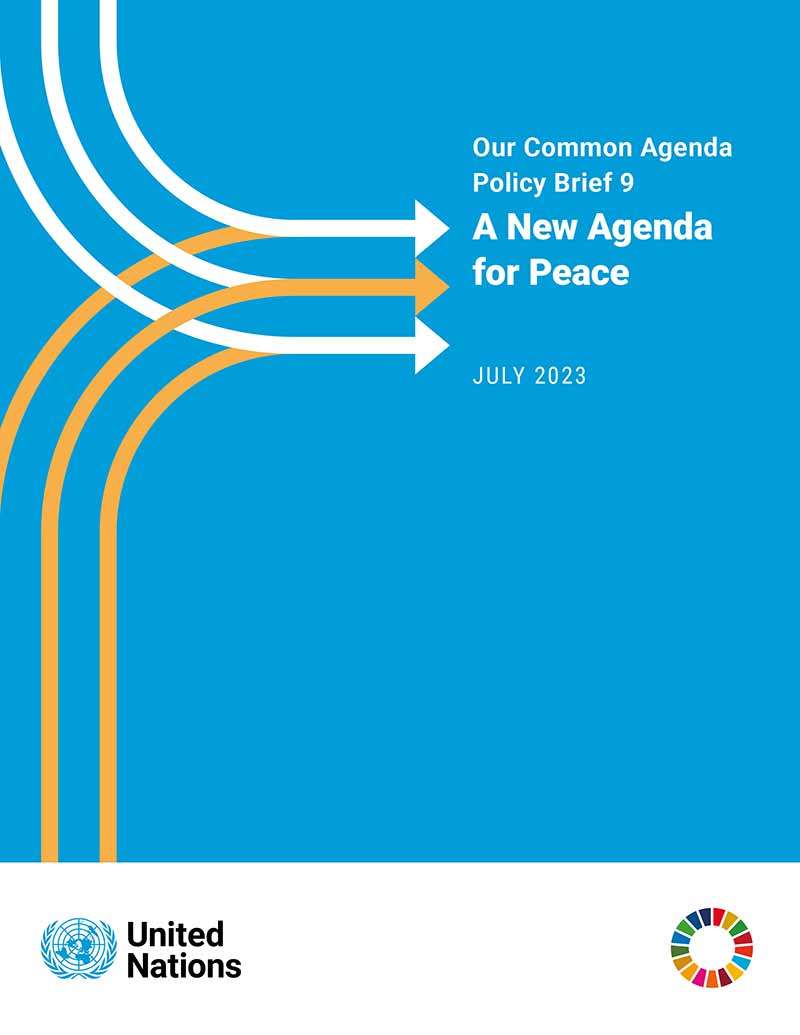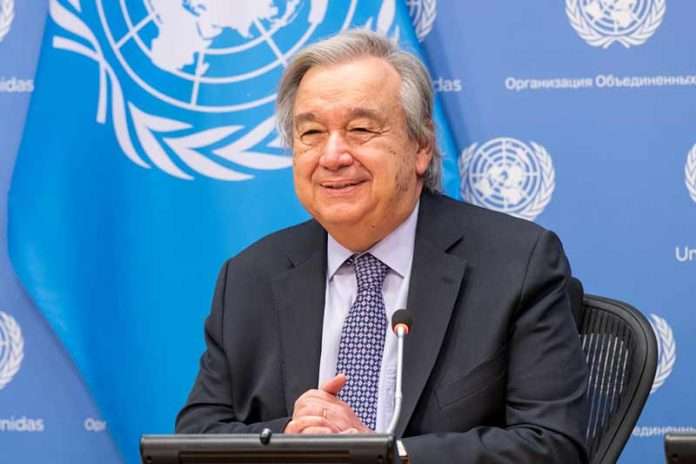THE TIMES KUWAIT REPORT
In September 2021, UN Secretary-General António Guterres, in response to the request made by Member States on the 75th anniversary of the United Nations in 2020, submitted to the General Assembly his report titled ‘Our Common Agenda’. The report was a wake-up call to speed up the implementation of the Sustainable Development Goals and propel the commitments contained in the UN75 Declaration, as well as to hold a Summit of the Future in 2024.
Our Common Agenda was the Secretary-General’s vision for the future of global cooperation. It calls for inclusive, networked, and effective multilateralism to better respond and deliver for the people and planet and to get the world back on track by turbocharging action on the Sustainable Development Goals. It outlines possible solutions to address the gaps and risks that have emerged since 2015.
The following report comprises excerpts from the UN Secretary-General’s latest brief on advancing Our Common Agenda, launched on Friday, 21 July. In the brief titled ‘Our Common Agenda Policy Brief 9 on a ‘New Agenda for Peace’, the UN Chief noted: “The challenges that we face can be addressed only through stronger international cooperation. The Summit of the Future, in 2024, is an opportunity to agree on multilateral solutions for a better tomorrow, strengthening global governance for both present and future generations.
Member States must provide a response to the deep sense of unease which has grown among nations and people that Governments and international organizations are failing to deliver for them. For millions of people, the sources of that disappointment are to be found in the horrors of hunger, displacement and violence. Inequalities and injustices, within and among nations, are giving rise to new grievances. They have sown distrust in the potential of multilateral solutions to improve lives and have amplified calls for new forms of isolationism. As the planet warms, marginalization grows and conflicts rage, young people everywhere have grown disillusioned at the prospects for their future.

The choice before us is clear. Unless the benefits of international cooperation become more tangible and equitable, and unless States can manage their competition and move beyond their current divisions to find pragmatic solutions to global problems, human suffering will worsen. The urgency of all countries to come together, to fulfill the promise of the nations united, has rarely been greater.
My report on Our Common Agenda offered a vision to deliver on this promise. It outlined a multilateral system that could be more just, networked and effective. Building this new multilateralism must start with action for peace, not only because war undermines progress across all our other agendas, but because it was the pursuit of peace that in 1945 unified States around the need for global governance and international organization.
This new multilateralism must recognize that the world order is shifting. This new multilateralism demands that we look beyond our narrow security interests. The peace that we envisage can be pursued only alongside sustainable development and human rights. The collective security system that the United Nations embodies has made humanity safer and more prosperous. Peacemaking and peace-keeping have helped to end wars and prevent numerous crises from escalating into full-blown violence. Where wars broke out, collective action by the United Nations often helped shorten their duration and alleviate their worst effects.
Nonetheless, peace remains an elusive promise for many around the world. Conflicts continue to wreak destruction, while their causes have become more complex and difficult to resolve. This may make the pursuit of peace appear a hopeless undertaking. However, in reality, war is always a choice: to resort to arms instead of dialogue, coercion instead of negotiation, imposition instead of persuasion. Therein lies our greatest prospect, for if war is a choice, peace can be too. It is time for a recommitment to peace.
The United Nations is shaped fundamentally by the willingness of its Member States to cooperate. We are now at an inflection point. The post-cold war period is over. A transition is under way to a new global order. In this moment of transition, power dynamics have become increasingly fragmented as new poles of influence emerge, new economic blocs form and axes of contestation are redefined.
Nonetheless, the imperative of cooperation is evident. Unconstrained competition among nuclear powers could result in human annihilation. Failure to address other global threats poses existential risks for States and societies around the world. The uneven suffering created by the effects of climate change ranks among the greatest injustices of this world. The most vulnerable communities bear the brunt of a crisis that they did not create.
Rising sea levels and shrinking land masses are an existential threat to some island States. They may also create new, unanticipated areas of contestation, leading to new or resurgent disputes related to territorial and maritime claims. Climate policies and green energy transitions can offer avenues for effective peacebuilding and the inclusion of women, Indigenous communities, the economically disadvantaged and youth.
The United Nations is, at its core, a norms-based organization. It owes its birth to an international treaty, the Charter, signed and ratified by States. It faces a potentially existential dilemma when the different interpretations by Member States of these universal normative frameworks become so entrenched as to prevent adequate implementation. Rebuilding consensus on the meaning of and adherence to these frameworks is an essential task for the international system.
The collective security system envisioned in the UN Charter offers the promise of an ever more peaceful and just world. Today, however, the chasm is widening between the potential of collective security and its reality. Collective security is gravely undermined by the failure of Member States to effectively address the global and interlocking threats before them, to manage their rivalries and to respect and rein- force the normative frameworks that both govern their relations with each other and set international parameters for the well-being of their societies
The organs of the United Nations are vital for harmonizing the actions of Member States to attain common goals. However, some of their structures have become anachronistic and should be urgently updated for a more effective collective security system.
A Security Council that is more representative of the geopolitical realities of today, and of the contributions that different parts of the world make to global peace, is urgently needed. Most Member States acknowledge this, even if concrete progress remains elusive. But reform of Security Council membership must be accompanied by a genuine democratization of its working methods.
The General Assembly has a critical role to play as well, based on its strong legitimacy and universal membership, to address a range of peace and security challenges and exercise its powers under Articles 10 to 14 of the Charter. This role can be particularly important when the Security Council is unable to fulfill its primary responsibility for the maintenance of international peace and security.
My vision as outlined in the present document is one of hope and optimism. Despite the profound difficulty of the current moment, I expect that Member States will rise to the challenge. During its 78 years of existence, the United Nations has heard, time and again, announcements of its imminent demise or increasing irrelevance. However, overcoming failures and shortcomings, the Organization has not only endured, but remained the nerve center of the multilateral system.

















